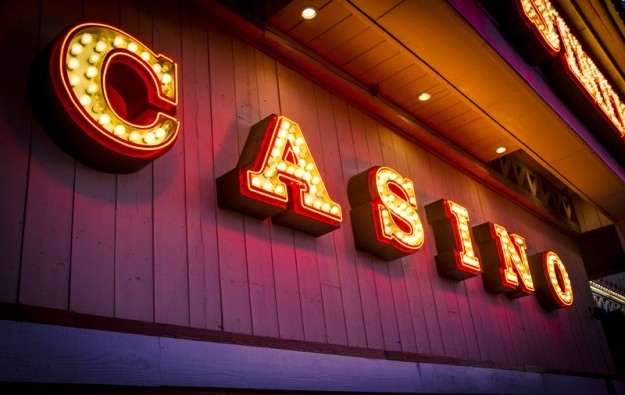Macau regulator denies plans to bar locals from casinos
Jan 16, 2015 Newsdesk Latest News, Macau, Top of the deck

Macau’s casino regulator has taken the unusual step of commenting on what it describes as “information circulating on the Internet” suggesting locals might be barred from entering the city’s casinos.
The Gaming Inspection and Coordination Bureau – known as DICJ – said in a statement on Thursday concerning the ‘barring locals’ rumours: “Regarding the recent information circulating on the Internet about ‘prohibition of entry in casinos for Macau permanent and non-permanent residents before 2016’, we would like to clarify that those are just rumours.”
The period 2015-2016 has been mentioned previously by the Macau government as the start time for talks with local casino operators about what will happen when their current licences expire on various dates between 2020 and 2022.
The gaming bureau added in its statement: “The ban on the entry of certain persons in casinos, namely persons under the age of 21, is clearly stated in Law n.º10/2012, which came into force in November 2012, aiming to promote responsible gambling.”
That law says any person under 21 that enters, works or gambles in a casino will be liable to a fine of between MOP1,000 (US$125) and MOP10,000, while a casino operator allowing any person under 21 to enter, work or gamble in a casino will be liable to a fine of between MOP10,000 and MOP500,000.
Raising the age of entry to Macau casinos from 18 to 21 was described as the time as a move designed mainly to protect locals and encourage Macau young people to stay on in education rather than to become casino dealers straight from school.
Local players’ contribution to Macau casino gross gaming revenue (GGR) is thought to be small when judged in percentage terms. But local media on Thursday reported that a survey conducted by a non-profit organisation called the Bosco Youth Service Network suggested that a greater number of local young people than previously were displaying symptoms of gambling addiction. The survey also claimed a rise in betting on sports by local youths during 2014.
The casino ban denial takes place against a background of some uncertainty in the city about the short-term direction of the local gaming industry – in the light of the Chinese central government’s crackdown on corruption on the mainland, and President Xi Jinping’s call in December for Macau to “strengthen and improve regulation and supervision over the gaming industry”.
GGRAsia understands the ban gossip first appeared in Chinese-language postings on the digital social media platform WeChat, and was then mentioned in midweek – again in Chinese – on the Facebook page of a local labour pressure group, Forefront of Macao Gaming. The group claims to represent the views of many Macau casino workers. It was involved last year in a series of demonstrations outside casino venues, pressing for improved conditions and better pay for local workers. In Macau, only permanent residents can work as casino dealers.
The government’s responsible gambling initiatives began in 2009 and have since been backed up with a legal framework.
The November 2012 law mentioned in the gaming bureau’s statement also had a provision allowing permanent residents to seek self-exclusion from casinos – for their own protection – for a period of up to two years.
And in November 2013 a regulation said that slot parlours – venues popular with local players – must be confined to either a five-star hotel, a non-residential building located within a 500 metres (0.31-miles) radius of a casino, or a resort that is “not situated in a densely populated area”.
A recent survey by Taiwanese academics on social attitudes toward the casino industry suggested 34.1 percent of Macau respondents had never been to a casino for gambling.
Related articles
-
 Macau regulator probes unlicensed...
Macau regulator probes unlicensed...Jul 24, 2024
-
 Economy, more visitors lead to Macau...
Economy, more visitors lead to Macau...Jul 18, 2024
More news
-
 Donaco EBITDA up y-o-y to above US$4mln...
Donaco EBITDA up y-o-y to above US$4mln...Jul 26, 2024
-
 HK listed Palasino upgrades Czech...
HK listed Palasino upgrades Czech...Jul 26, 2024
Latest News
Jul 26, 2024
Border-casino operator Donaco International Ltd has achieved a 164.17-percent year-on-year increase in its latest quarterly group earnings before interest, taxation, depreciation and amortisation...Sign up to our FREE Newsletter
 (Click here for more)
(Click here for more)
Pick of the Day
”We’ve got more traction outside of Macau at the moment. But Macau’s going be a bigger focus for us”
David Punter
Regional representative at Konami Australia
Most Popular
 Sheraton brand to exit Londoner Macao, to be Londoner Grand July 25, 2024
Sheraton brand to exit Londoner Macao, to be Londoner Grand July 25, 2024  Macau regulator probes unlicensed gaming agents July 24, 2024
Macau regulator probes unlicensed gaming agents July 24, 2024  Philippines gives 20k aliens in POGOs 60 days to leave July 25, 2024
Philippines gives 20k aliens in POGOs 60 days to leave July 25, 2024  Philippines-listed DigiPlus says not affected by POGO ban July 24, 2024
Philippines-listed DigiPlus says not affected by POGO ban July 24, 2024  Sands China 2Q EBITDA down q-o-q amid low hold, renovation July 25, 2024
Sands China 2Q EBITDA down q-o-q amid low hold, renovation July 25, 2024






